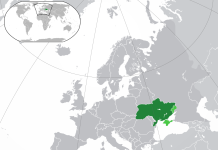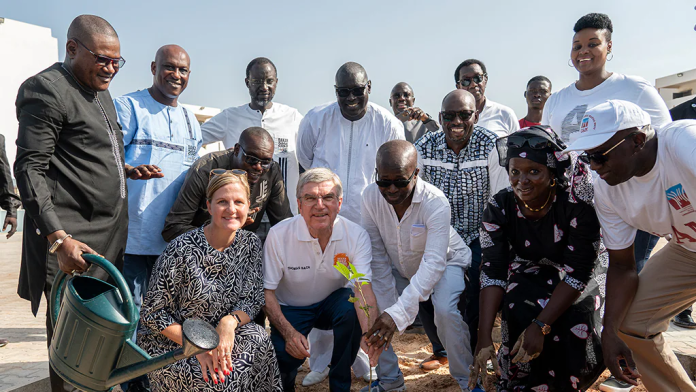| Olympic Forest growing as symbolic tree planted by IOC President Bach in Senegal |
| The Olympic Forest is growing: On the occasion of a visit to Senegal, host of the Youth Olympic Games 2026, International Olympic Committee (IOC) President Thomas Bach, accompanied by IOC members Kirsty Coventry and Mamadou Diagna Ndiaye, planted a symbolic native tree at the future Youth Olympic Village in Dakar. This celebrates the first phase of tree-planting activities for the Olympic Forest in Senegal and Mali, where 70,000 seedlings have already been planted to date. |
| Speaking at the planting ceremony that took place on Saturday on the university campus of Diamniadio – future home of the athletes for the Youth Olympic Games Dakar 2026 – President Bach welcomed the progress of the project: “I am delighted to see that the project is now underway and that the first 70,000 trees have been planted in Senegalese and Malian villages in the Sahel zone. The Olympic Forest is about more than just planting trees. Communities in the Sahel zone will greatly benefit from this project by seeing an increase in their climate resilience, food security, nutrition and income opportunities. The Olympic Movement is about building a better world through sport, and the Olympic Forest demonstrates our commitment to this vision.”In total, the Olympic Forest project will involve the planting of around 590,000 native trees over four years across 90 villages in Mali and Senegal, restoring approximately 2,000 hectares of degraded forest and farmland.President Bach added: “The Olympic Forest is a key driver of the IOC’s ambition to move from now being a carbon-neutral to a climate-positive organisation in 2024 and helps us to remove more carbon from the atmosphere than we emit. With this, we want to lead the way for the entire Olympic Movement.”At the ceremony, Mrs. Rouguiatou Diallo, committee secretary of the village of Sinthiou Fissa and direct beneficiary of the project, said: “It had been five years that we had not seen a lot of trees. As a consequence, there was no rain and a lot of dust. The Olympic Forest project is beneficial for the local populations and mostly women and children. For instance, in our village, several species of fruit trees have been planted like lemon trees, mango trees, and mahoganies, which greatly helps us to combat undernutrition and malnutrition”.Villagers are also actively engaged in supervising the growth and health of the seedlings and reporting any potential issues. Besides sequestering carbon by planting trees, the initiative creates diverse social, economic, and environmental benefits in an area frequently hit by droughts and floods, leading to a steady degradation of land and sources of food. The project contributes to Africa’s Great Green Wall, a UN-backed initiative that restores degraded landscapes across the Sahel.The Olympic Forest activities on the ground are implemented by Tree Aid, a non-profit organization with over 35 years’ experience working with people in the dry lands of Africa to tackle poverty and the effects of the climate crisis by growing trees and restoring and protecting land. Also present in Dakar, Mr Désiré Ouedraogo, Tree Aid’s Head of Programme design and advocacy, said: “The Great Green Wall is one of the leading solutions for communities and ecosystems in African drylands. We are very proud of our partnership with the IOC, whose commitment helps us increase our resources to preserve and restore fragile ecosystems and support vulnerable communities that are living at the forefront of the climate crisis”.Mr Ibrahima Diallo, Executive Secretary of the NGO La Lumière – Tree Aid’s local implementing partner – explained the importance of the project. “Firstly, we need to protect Senegal from the progress of the drought,” he said. “And secondly, we must sequester a large amount of carbon because mining activities are developing and we need to be able to live from our soils, in a healthy environment. This is why planting is so important,” he added.“All local communities are now trained and organised,” he continued. “The first phase of transfer of knowledge and technology is done, and we are now well into the planting phase”.To maximise the chances of survival for the trees, the team is putting in place water-conserving measures and working together with the community to select species best suited for local conditions. In January 2021, the IOC announced that it will reduce its emissions by 30 percent by 2024 and by 50 percent by 2030 in line with the Paris Agreement. In addition, it will compensate more than 100 percent of its residual emissions. The Olympic Forest will thus enable the IOC to become climate-positive by 2024 by sequestering approximately 200,000 tonnes of carbon dioxide equivalent (t CO2e), an amount superior to the IOC’s projected total emissions for the period 2021-2024. |




















